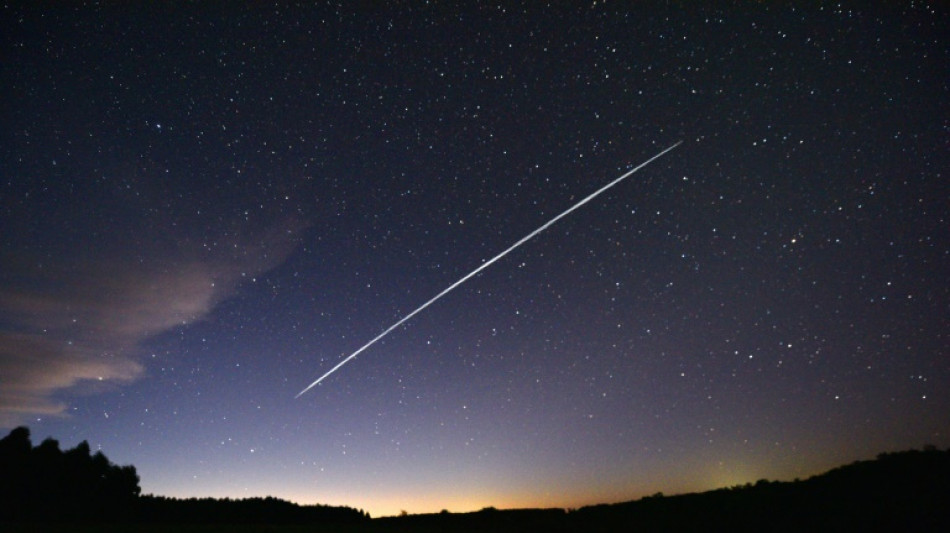
-
 Henman says Raducanu needs more physicality to rise up rankings
Henman says Raducanu needs more physicality to rise up rankings
-
France recall fit-again Jalibert to face Scotland

-
 Harry Styles fans head in one direction: to star's home village
Harry Styles fans head in one direction: to star's home village
-
Syrian jailed over stabbing at Berlin Holocaust memorial

-
 Second Iranian ship heading to Sri Lanka after submarine attack
Second Iranian ship heading to Sri Lanka after submarine attack
-
Middle East war spirals as Iran hits Kurds in Iraq

-
 Norris hungrier than ever to defend Formula One world title
Norris hungrier than ever to defend Formula One world title
-
Fatherhood, sleep, T20 World Cup final: Henry's whirlwind journey

-
 Conservative Nigerian city sees women drive rickshaw taxis
Conservative Nigerian city sees women drive rickshaw taxis
-
T20 World Cup hero Allen says New Zealand confidence high for final

-
 The silent struggle of an anti-war woman in Russia
The silent struggle of an anti-war woman in Russia
-
Iran hits Kurdish groups in Iraq as conflict widens

-
 China sets lowest growth target in decades as consumption lags
China sets lowest growth target in decades as consumption lags
-
Afghans rally against Pakistan and civilian casualties

-
 South Korea beat Philippines 3-0 to reach women's quarter-finals
South Korea beat Philippines 3-0 to reach women's quarter-finals
-
Mercedes' Russell not fazed by being tipped as pre-season favourite

-
 Australia beat Taiwan in World Baseball Classic opener
Australia beat Taiwan in World Baseball Classic opener
-
Underdogs Wales could hurt Irish after Scotland display: Popham

-
 Gilgeous-Alexander rules over Knicks again in Thunder win
Gilgeous-Alexander rules over Knicks again in Thunder win
-
Hamilton reveals sequel in the works to blockbuster 'F1: The Movie'

-
 Alonso, Stroll fear 'permanent nerve damage' from vibrating Aston Martin
Alonso, Stroll fear 'permanent nerve damage' from vibrating Aston Martin
-
China boosts military spending with eyes on US, Taiwan

-
 Seoul leads rebound across Asian stocks, oil extends gains
Seoul leads rebound across Asian stocks, oil extends gains
-
Tourism on hold as Middle East war casts uncertainty

-
 Bayern and Kane gambling with house money as Gladbach come to town
Bayern and Kane gambling with house money as Gladbach come to town
-
Turkey invests in foreign legion to deliver LA Olympics gold

-
 Galthie's France blessed with unprecedented talent: Saint-Andre
Galthie's France blessed with unprecedented talent: Saint-Andre
-
Voice coach to the stars says Aussie actors nail tricky accents

-
 Rahm rejection of DP World Tour deal 'a shame' - McIlroy
Rahm rejection of DP World Tour deal 'a shame' - McIlroy
-
Israel keeps up Lebanon strikes as ground forces advance

-
 China prioritises energy and diplomacy over Iran support
China prioritises energy and diplomacy over Iran support
-
Canada PM Carney says can't rule out military participation in Iran war

-
 Verstappen says new Red Bull car gave him 'goosebumps'
Verstappen says new Red Bull car gave him 'goosebumps'
-
Swiss to vote on creating giant 'climate fund'

-
 Israel, Iran launch fresh attacks as war spreads
Israel, Iran launch fresh attacks as war spreads
-
Google to open German centre for 'AI development'

-
 Winter Paralympics to start with icy blast as Ukraine lead ceremony boycott
Winter Paralympics to start with icy blast as Ukraine lead ceremony boycott
-
Sci-fi without AI: Oscar nominated 'Arco' director prefers human touch

-
 Ex-guerrillas battle low support in Colombia election
Ex-guerrillas battle low support in Colombia election
-
'She's coming back': Djokovic predicts Serena return

-
 Hamilton vows 'no holding back' in his 20th Formula One season
Hamilton vows 'no holding back' in his 20th Formula One season
-
Two-thirds of Cuba, including Havana, hit by blackout

-
 US sinks Iranian warship off Sri Lanka as war spreads
US sinks Iranian warship off Sri Lanka as war spreads
-
ReadyCode Launches ReadyM, a Creative Multiplayer Platform Bringing Community-Driven Gameplay to the World’s Most Beloved Single-Player Games

-
 Physical Gold IRA: IRA Gold Investment Guide Released for 2026
Physical Gold IRA: IRA Gold Investment Guide Released for 2026
-
InterContinental Hotels Group PLC Announces Transaction in Own Shares - March 05

-
 After oil, US moves to secure access to Venezuelan minerals
After oil, US moves to secure access to Venezuelan minerals
-
Arteta hits back at Brighton criticism after Arsenal boost title bid

-
 Carrick says 'defeat hurts' after first loss as Man Utd boss
Carrick says 'defeat hurts' after first loss as Man Utd boss
-
Ecuador expels Cuba envoy, rest of mission


Dozens of SpaceX internet satellites lost to geomagnetic storm
Up to 40 SpaceX high-speed internet satellites have been knocked out of orbit by a geomagnetic storm shortly after launch, but pose little threat to Earth as they burn up in the atmosphere, the company said.
Geomagnetic storms are caused by ejections of the solar corona into space, resulting in disturbances to the Earth's upper atmosphere and increased drag on objects in low orbits.
The latest 49 satellites from the Starlink network launched from the Kennedy Space Center in Florida on February 3 and successfully assumed their initial orbit, with their nearest approach to the surface 130 miles (210 kilometers) high.
The company places them into this region to carry out final checks before flying further into space.
On February 4, however, they were struck by the space weather event, Elon Musk's company said in a statement late Tuesday.
"These storms cause the atmosphere to warm and atmospheric density at our low deployment altitudes to increase. In fact, onboard GPS suggests the escalation speed and severity of the storm caused atmospheric drag to increase up to 50 percent higher than during previous launches," it said.
The Starlink team commanded the satellites into a safe mode, where they would fly edge-on -- like a sheet of paper -- to minimize drag as they sought shelter.
But despite the evasive maneuver, most were unable to raise their orbits, and as many as 40 "will reenter or already have reentered the Earth's atmosphere."
The company insisted they posed "zero collision risk" with other satellites and are designed to disintegrate upon re-entry, with no debris expected to hit the ground.
The UK Space Agency agreed in a blog post that there was "virtually no risk" since the satellites are built without any dense metallic components and should burn up entirely, but said it was monitoring closely. NASA has not yet commented.
Apart from increasing atmospheric drag, geomagnetic storms can wreak havoc with satellites' computer circuitry and thus cause them to fail, according to space industry analyst Seradata.
Whatever the exact cause, the loss could point to a design weakness in Starlink satellites' ability to withstand such storms, Seradata's David Todd wrote in a post.
But it is not expected to impact the overall functioning of the Starlink "constellation."
SpaceX has launched more than 2,000 of the satellites since May 2019, with more than 1,500 currently operational, providing internet coverage across most of the planet.
The company currently has regulatory approval for 12,000 satellites, with plans to expand even further.
Astronomers have raised concerns about their impact on ground-based astronomy as they add to a congested environment in Low Earth Orbit (LEO).
There are approximately 4,000 active satellites in this space, which extends to 1,200 miles above the surface, as well as 15,000 pieces of debris like rocket bodies and defunct probes, according to the UK Space Agency.
L.Durand--AMWN